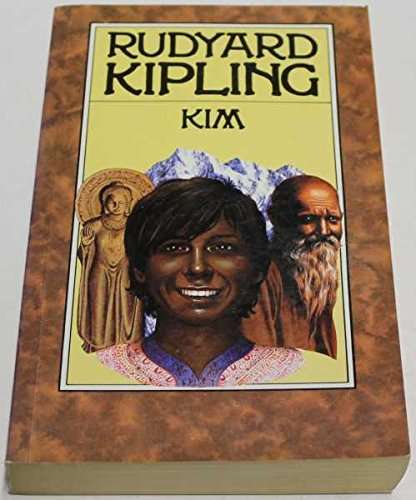
Kim - Rudyard Kipling
Check my rate
| Main centres: | 1-3 business days |
| Regional areas: | 3-4 business days |
| Remote areas: | 3-5 business days |

| Main centres: | 1-3 business days |
| Regional areas: | 3-4 business days |
| Remote areas: | 3-5 business days |
Kim by Rudyard Kipling is a classic novel of adventure and self-discovery that takes readers on a journey through British-occupied India in the late 19th century. First published in 1901, this richly detailed and atmospheric work is often regarded as one of Kiplings finest accomplishments, blending historical fiction, travel writing, and profound cultural exploration.
At the heart of Kim is the story of a young boy named Kimball OHara, or Kim, who is an orphaned Irish child living in the streets of Lahore, India. He is a mischievous, resourceful, and free-spirited character who drifts between different worlds: that of the native population, British colonial authorities, and European missionaries. Kim's life is one of ambiguity, as he neither fully belongs to the Indian culture nor to the colonial British world, but instead occupies a liminal space that allows him to navigate and influence both.
The novel follows Kims remarkable journey as he becomes involved in espionage, working as a secret agent for the British government. He is recruited by a Tibetan Lama, whom he accompanies on a pilgrimage, and through their travels together, Kim learns profound lessons about identity, loyalty, and the complexity of the world around him. As the plot unfolds, Kims loyalty is tested, his sense of self is challenged, and his understanding of the global forces shaping his life grows deeper. The story explores themes of colonialism, nationalism, and the tensions between Eastern and Western cultures.
What makes Kim so compelling is Kiplings brilliant use of language and his profound understanding of the diverse cultures, customs, and landscapes of India. The novel is a vivid snapshot of a time and place on the cusp of change, and Kiplings descriptions of the people, settings, and political dynamics feel alive and immersive. The books exploration of espionage, politics, and spirituality provides both intellectual depth and thrilling adventure.
Kim also offers rich philosophical reflections on identity, belonging, and the nature of human connection. Through Kim's relationship with the Lama, Kipling introduces the contrast between the material world and spiritual enlightenment, exploring the role of individual agency within larger political and cultural systems. Kims ultimate search for his own identity and purpose makes the novel both a personal coming-of-age story and a broader reflection on the complexities of empire and cultural exchange.
For readers interested in historical fiction, adventure, and the exploration of complex cultural themes, Kim is a must-read a brilliant and timeless exploration of identity, loyalty, and the convergence of East and West.